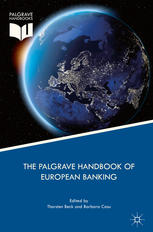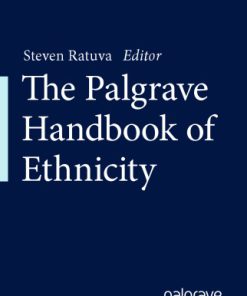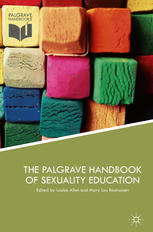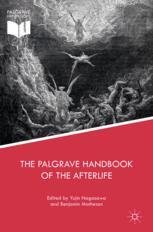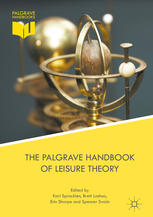The Palgrave Kant Handbook 1st Edition by Matthew Altman 1137546557 9781137546555
$50.00 Original price was: $50.00.$25.00Current price is: $25.00.
The Palgrave Kant Handbook 1st Edition by Matthew C. Altman – Ebook PDF Instant Download/DeliveryISBN: 1137546557, 9781137546555
Full download The Palgrave Kant Handbook 1st Edition after payment.
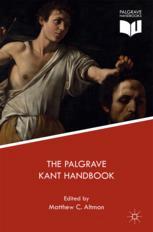
Product details:
ISBN-10 : 1137546557
ISBN-13 : 9781137546555
Author: Matthew C. Altman
This remarkably comprehensive Handbook provides a multifaceted yet carefully crafted investigation into the work of Immanuel Kant, one of the greatest philosophers the world has ever seen. With original contributions from leading international scholars in the field, this authoritative volume first sets Kant’s work in its biographical and historical context. It then proceeds to explain and evaluate his revolutionary work in metaphysics and epistemology, logic, ethics, aesthetics, philosophy of science, philosophy of religion, political philosophy, philosophy of history, philosophy of education, and anthropology. Key Features: • Draws attention to the foundations of Kant’s varied philosophical insights — transcendental idealism, logic, and the bridge between theoretical and practical reason• Considers hitherto neglected topics such as sexuality and the philosophy of education • Explores the immense impact of his ground-breaking work on subsequent intellectual movements Serving as a touchstone for meaningful discussion about Kant’s philosophical and historical importance, this definitive Handbook is essential reading for Kant scholars who want to keep abreast of the field and for advanced students wishing to explore the frontiers of the subject.
The Palgrave Kant Handbook 1st Table of contents:
1 Introduction: Kant the Revolutionary
The transcendentals
The True: Why do our a priori concepts track the world?
The Good: Why be moral?
The Beautiful: How can aesthetic judgments be justified?
Summary of chapters
Conclusion
PartI Biographical and Historical Background
2 Kant’s Life
Kant’s early education
Pietism and rationalism in Königsberg
Kant’s university studies
Becoming professor Kant
Kant’s lectures and his students
Kant’s interests and where they led
Responses to the Critique
Kant’s watch, Mr. Green, and the art of conversation
Completing the system: Kant’s third Critique
Kant and religion
Kant’s end
3 Kant and His Philosophical Context: The Reception and Critical Transformation of the Leibnizian-Wo
Introduction
The opening of a critical recovery of Leibniz in the confrontation with Eberhard
The system of pre-established harmony and purposiveness without purpose
The Leibnizian-Wolffian tradition in the development of the theory of reflective judgment
PartII Metaphysics and Epistemology
4 Transcendental Idealism: What and Why?
What?
Why?
What? again
5 Noumenal Ignorance: Why, for Kant, Can’t We Know Things in Themselves?
Introduction
One-world ignorance
Allison: Discursivity + Epistemic conditions = Ignorance
Langton: Receptivity + Irreducibility = Ignorance
Two-world ignorance
Van Cleve: Receptivity + Reducibility = Ignorance
Hogan: Freedom + Practical knowledge = (Theoretical) ignorance
The logical and semantic side of noumenal ignorance (Naranjo Sandoval)
Modal motives for ignorance (Chignell)
Conclusion
6 Kant’s Concept of Cognition and the Key to the Whole Secret of Metaphysics
Knowledge, truth, and cognition
Cognition, perception, and intuition
Sensation, representation, and objective validity
Objectivity, normativity, and cognizability
Cognition, faith, and metaphysics
7 Apperception, Self-Consciousness, and Self-Knowledge in Kant
Introduction
Self-consciousness and identity
Transcendental apperception and self-consciousness
Self-knowledge
PartIII Logic
8 The Place of Logic within Kant’s Philosophy
Logic and the Copernican turn
Logic as the science of understanding (thinking)
From the science of thinking and to the science of its contents (concepts)
From the science of thinking to the critique of cognition from reason
The role of logic across Kant’s philosophical architectonic
PartIV Relation between Theoretical and Practical Reason
9 The Primacy of Practical Reason
The reality of freedom
Imperatives of theoretical reason
Reason and freedom
The primacy of the practical
10 A Practical Account of Kantian Freedom
Making room for faith in freedom
Arguments for freedom
Moral motivation: Respect as an incentive
Noumenal causality
Compatibilism and causality
Libertarian agency and personal identity
Causality and temporality
The practical account
Conclusion: Trafficking in the space of reasons
11 Moral Skepticism and the Critique of Practical Reason
“Pure practical reason proves its reality by what it does”: Some preliminary textual evidence
The bindingness of reason’s form
“Merely insofar as they have a will”: The doctrine of the fact of reason
Conclusion
PartV Ethics
12 How a Kantian Decides What to Do
Deciding what you ought to do
Ends and reasons
Duties and virtues
Duties as reasons
The moral law: Universalizability, humanity as end, autonomy
Testing maxims
Conscience
Summary
13 Duties to Oneself
The justification of duties toward self
The primacy of duties toward self
The derivation of duties
Deriving concrete duties toward self
Conclusion
14 Demandingness, Indebtedness, and Charity: Kant on Imperfect Duties to Others
Two questions about the duty of assistance
Duties of assistance and demandingness
Dependence and obligation
Kant’s argument(s) for a duty of assistance
Adopting the ends of others as one’s own: Benevolence and beneficence
Toward a solution to the puzzle
Luck, injustice, and charity
Conclusion
15 Kant and Sexuality
Introduction
Setting the stage
Kant’s account of human nature
The inescapable problem of evil
Heterosexist assumptions in Kant’s account of human nature
Morality and sexuality
Virtue and sexuality
Right and sexuality
16 Kant in Metaethics: The Paradox of Autonomy, Solved by Publicity
Why discuss Kant in metaethics?
Reason and autonomy
Autonomy as self-legislation
A dilemma about volitional autonomy
Autonomy and the recognition of others’ equal status
Publicity as a scope requirement
Autonomy and vulnerability
Concluding remarks: The fecundity of Kantian autonomy
Part VI Aesthetics
17 Feeling the Life of the Mind: Mere Judging, Feeling, and Judgment
Introduction
The distinction between judging and judgment: A development of Kant’s “key”
Free play as a feeling of the life of the mind
Feeling as a power to reflect
Exhibiting the life of the mind
Feeling as mediating reveals both the possibility and the limitation of cognition
18 On Common Sense, Communicability, and Community
Introductory considerations
Exemplary necessity: Idea and ground
The systematicity of cognition and the sense of harmony
Common sense: Natural or artificial?
Community, the public sense, and the ordinary
19 Immediate Judgment and Non-Cognitive Ideas: The Pervasive and Persistent in the Misreading of Kan
Introduction: Three apparent dichotomies
Intuition: Immediate judgment and prior learning
The “form of purposiveness”: Autonomy and communicability
Disinterest: Non-cognitive engagement and aesthetic Ideas
A positive account: Public sentiment to parallel public reason
20 Sublimity and Joy: Kant on the Aesthetic Constitution of Virtue
Introduction
The aesthetic judgment of the sublime in nature
Clues from the aesthetic judgment of reflection
The specifics of the sublime
The emotional register of the sublime
The temperament of virtue
PartVII Philosophy of Science
21 “Proper Science” and Empirical Laws: Kant’s Sense of Science in the Critical Philosophy
The critical turn and a priori natural science
Metaphysics of nature: “Proper science”
The First Introduction to the Critique of Judgment and empirical science
The context of actual natural science in late eighteenth-century Germany
22 From General to Special Metaphysics of Nature
Nature and its metaphysics
Matter, motion, and apriority
Motion and mathematics
Apriority
The application of metaphysics
Fruits and limits
Part VIII Philosophy of Religion
23 Kant on Faith: Religious Assent and the Limits to Knowledge
The emergence of moral/pure rational faith
Glaube in Kant’s taxonomy of propositional attitudes
The limits to knowledge and the room for faith
Religion’s “experiment” and the contests of historical faith
Historical faith as Fürwahrhalten
Conclusion
24 The Fate of Religion within the Boundaries of Mere Reason
Religion under critique, formally (method) and materially (content)
Establishing in a dual critical way the logical possibility of truth in religion
Defining the real possibility of truth in religion
Morality leads – four times – inevitably to religion
Criticism at work: Grasping the four essentials of moral religion
Kant’s critique assessing the truth of the religious theme of grace
Kant’s critique assessing the truth of representations of Christology
Kant’s critique assessing the truth of ecclesiological representations
Kant’s critique assessing the truth of ecclesiastical services, rituals, and practices
Conclusion
PartIX Political Philosophy
25 The Critical Legal and Political Philosophy of Immanuel Kant
In the shadow of the Critique of Pure Reason
The importance of open, critical enquiry
The limits of psychology
The importance of the practical point of view
The central precepts of Kant’s political philosophy
Property and contract
The social or the original contract
Republicanism and cosmopolitanism
26 A Cosmopolitan Law Created by Cosmopolitan Citizens: The Kantian Project Today
Introduction
Cosmopolitan law: Human rights and international criminal law
Cosmopolitan law by Kant
Cosmopolitan rights at the local level
The individual as a subject of cosmopolitan law
The paradox of Kant’s cosmopolitan law
The cosmopolitics of cosmopolitan citizenship
Cosmopolitics by Kant
Cosmopolitics today
Cosmopolitics, cosmopolitanism, and identity issues
Indigenous peoples
The issue of migrants, refugees, asylum-seekers, and stateless and displaced persons
Identity issues in cosmopolitan institutions
Translation and identity issues
Conclusion
27 Kant’s Mature Theory of Punishment, and a First Critique Ideal Abolitionist Alternative
Introduction
Overview
Kant’s mature account of punishment
The consequentialist principle
The retributive principle
The respect for persons principle
An objection to the retributive principle
An “ideal abolitionist” original position reconstruction
PartX Anthropology, History, and Education
28 Denkungsart in Kant’s Anthropology from a Pragmatic Point of View
The many senses of “pragmatic” and the importance of freedom
Pragmatic vs. scholastic
Pragmatic vs. physiological
Pragmatic anthropology, prudence, and happiness
Pragmatic anthropology and the use of others
Pragmatic as practical
Empirical anthropology and the importance of Denkungsart
Conclusion: What is anthropology from a pragmatic point of view?
29 Kant on Emotions, Feelings, and Affectivity
The distinction between the feeling of pleasure and pain and the faculty of desire
Feelings as non-cognitive affective states
The beauty model of intentionality
Harmony and free play of the faculties
Feelings as valenced appraisals of the conditions of agency
Conclusion
30 The Philosopher as Legislator: Kant on History
Unity: Why?
Unity: How?
What is history?
The philosopher as legislator; or, why should anyone care for philosophical history?
31 Becoming Human: Kant’s Philosophy of Education and Human Nature
Education outside the Lectures on Pedagogy
An age of education
The destiny of the human species
Revolution, experimentalism, naturalism
Public education?
Conclusion
PartXI The Kantian Aftermath, and Kant’s Contemporary Relevance
32 Kant after Kant: The Indispensable Philosopher
Making history
Justifying cognitive frameworks
Working with “the crooked wood of humanity”
Conclusion
33 Kant, the Copernican Devolution, and Real Metaphysics
Introduction
The criterion of phenomenological adequacy for metaphysical theories
Kant’s radical agnosticism
Kant’s critique of modal metaphysics
Kant’s Non-Conceptualism, Kantian Non-Conceptualism, and Kant’s proto-critical argument for tran
Kant’s modal dualism, apriorism, and theory of the synthetic a priori
Conclusion
34 Contemporary Kantian Moral Philosophy
Wood’s criticisms
The formula of universal law
The aims and methods of ethical theory
The metaethics of autonomy
35 Conclusion: Kant the Philosopher
Conclusion: Kant the Philosopher
People also search for The Palgrave Kant Handbook 1st:
the palgrave handbook
the palgrave handbook on the philosophy of punishment
the palgrave handbook of russian thought
the palgrave handbook of anarchism
the palgrave kant handbook
Tags: The Palgrave, Kant Handbook, Matthew Altman, multifaceted
You may also like…
Politics & Philosophy
The Palgrave Handbook of International Development 1st Edition Jean Grugel
Politics & Philosophy
The Palgrave Handbook of European Banking 1st Edition Thorsten Beck
Politics & Philosophy - Politics
The Palgrave Handbook of Anarchism 1st Edition by Carl Levy, Matthew Adams 3319756192 9783319756196
Politics & Philosophy - Social Sciences
Politics & Philosophy - Social Sciences
The Palgrave Handbook of Sexuality Education 1st Edition by Louisa Allen 1137400338 9781137400338
Politics & Philosophy - Politics
The Palgrave Handbook of Political Elites 1st Edition by Heinrich Best 1137519047 9781137519047
Politics & Philosophy - Anthropology
The Palgrave Handbook of the Afterlife 1st Edition Yujin Nagasawa
Business & Economics
The Palgrave Handbook of Leisure Theory 1st Edition Karl Spracklen





